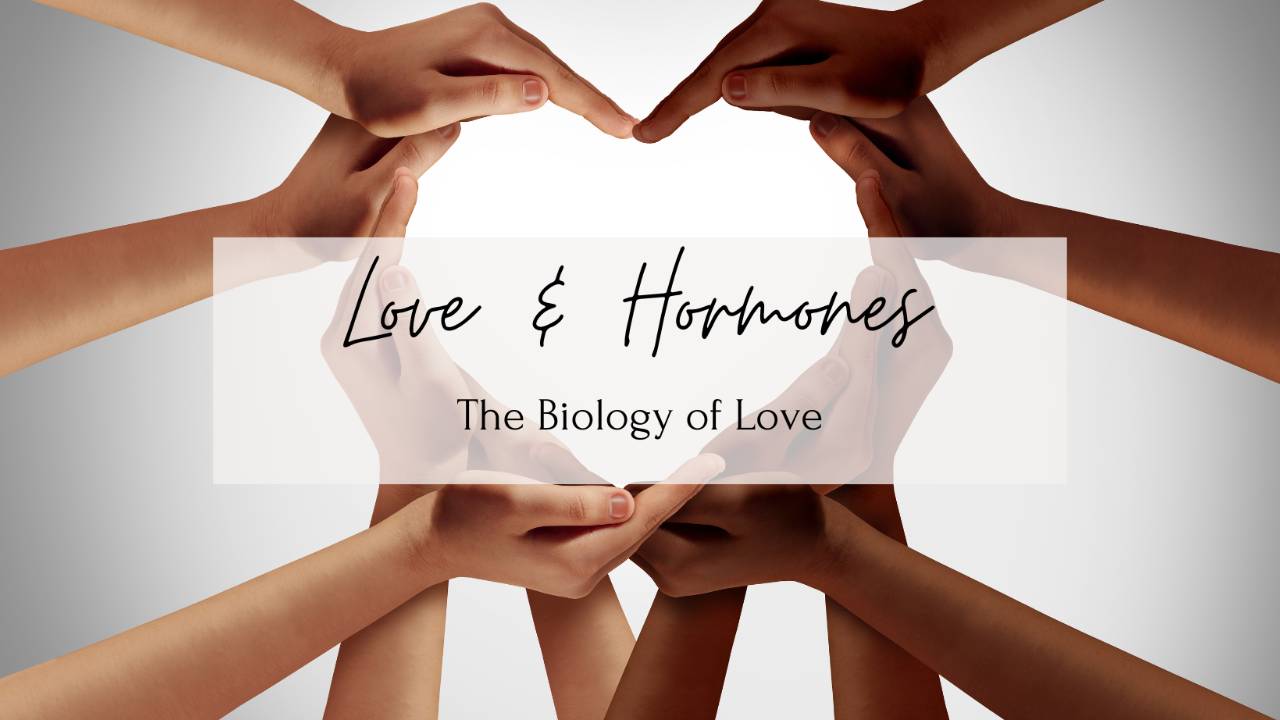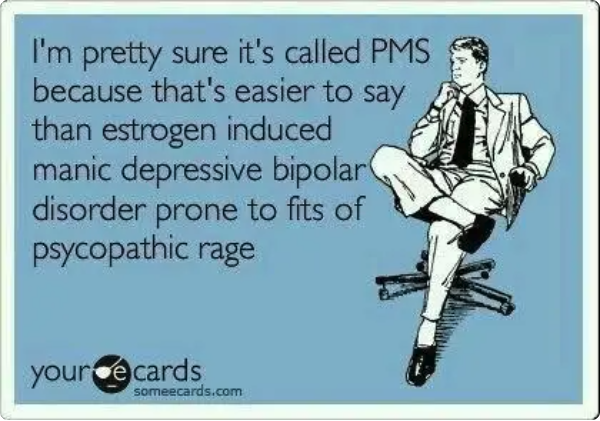Love & Hormones: The Biology of Love
Feb 06, 2023
Love & Hormones: The Biology of Love
Love is in the air- can you feel it? Love may mean different things to different people. Love is an emotion and a way of being, both noun and verb. It is often characterized by attraction, passion, emotional and physical intimacy, belonging, and commitment.
Whether you're thinking about love in the context of relationships or singleness and focusing on self-care, biology matters. Love often comes into play in how we relate to one another and our selves. Sometimes love feels easy, sometimes it may feel complicated. There's nothing right or wrong about any of it, but the way we love and how we feel may act as a clue to our inner chemistry.
Researchers who have studied love, have found that it is linked to the behavior and function of various hormones and neurotransmitters. These internal signals, produce the emotions we feel and the behaviors we act out. Some big players are estrogen, testosterone, cortisol, dopamine, norepinephrine, and serotonin (Seshadri, 2016). Our nervous system also plays a role with key nerves in our head, neck and shoulders forming a complex coined the "social engagement system."
When your body is in a state of harmony, balance, and well-being, these inner signals are functioning well and our body is in a state of openness and readiness for connection with others. However, when there is imbalance within the system, our body is shifted into other states that limit the function of the social engagement system and cause changes in hormone and neurotransmitter levels. This may cause us to have a more difficult time feeling connected with our inner self, greater challenge connecting with others or alter the quality of those relationships.
Testosterone
Desire and libido is often associated with the role of testosterone. It plays an integral role in physical, mental, and relational wellbeing for both men and women. Low testosterone in both sexes is associated with low libido, difficulty reaching an orgasm, reduced vaginal lubrication, fatigue, poor concentration, muscle weakness, bone loss, infertility, and weight gain. It's not too hard to imagine these symptoms affecting one's relationships, confidence, and sense of self.
Estrogen
Though often referred to in the singular form, there are actually a collection of three biologically active estrogens that influence wellbeing. Rises in estrogens around ovulation are recognized as increasing female libido. It may also increase a partner's attraction, making physical intimacy more likely- nature's way of increasing the likelihood of reproduction.
For women on hormonal birth control, estrogen is often included to silence natural estrogen production and prevent ovulation. Some research has suggested that taking hormonal contraception changes who women are attracted to and partner selection, and reduces sexual attraction, sexual arousal with their partners, and sexually adventurousness (Roberts, et al., 2012). This clearly has implications for relationships, both short and long term.
Similar to testosterone, low and high estrogen often bring about symptoms that influence wellbeing, mental health, and confidence which may impact the health and function of our relationships. For example, high estrogen (or estrogen that is elevated in comparison to progesterone, a state called "estrogen dominance") may cause anxiety, PMS, mood swings, and headaches. That rage you feel toward your partner (or kids or coworker...) right before your period for a small grievance- yeah, that could be linked to estrogen levels. And just because its common and has become a joke doesn't mean that it should be accepted as normal, much less optimal.
Tammy Schultze- Retrieved from Buzzfeed
Cortisol
Known as the "stress hormone" cortisol plays an important role in our energy, moods, and wellbeing. When internal or external stressors are high, the body shifts into a stress state, putting the social engagement system on pause and shifting hormone production to prefer cortisol rather than other hormones such as estrogen and testosterone (known as the "cortisol steal"). This may play a role in why PTSD (post traumatic stress disorder) is linked with low estrogen. Have you noticed when you're feeling stressed, you are more prone to irritability, short tempers, or feeling like a volcano on the verge of eruption? It doesn't take a lot of imagination to see how this could impact personal relationships.
Beginning to wonder if your hormones are out of balance and affecting your wellbeing and relationships? Take this short quiz to find out
Our bodies are meant to dynamically adapt to our environments. When you stop to think about it, it's pretty incredible that our body adapts its internal signals and communications in response to the outside world (and inside- the microbiome in our gut and food we eat also has an effect). These adaptations were biologically designed to impact our relationships with others, it needed to be this way for our survival.
Love isn't just an emotion. It's a biologically dynamic experience that influences our connectedness and desire. So if you're out there looking for love, whether you're trying to find the one or learn to love yourself more deeply, these internal signals are important to pay attention to. Watch this short clip with Karin Ashley NP and Integrative Women's Health expert on why it's important to pay attention to hormones and how they are interrelated.
For ways you can naturally support hormonal harmony, check out my blog post on the impact of stress on hormonal imbalances + natural remedies.
May you have everything you need to heal,
Christine Simons, DNP
References
Roberts SC, Klapilová K, Little AC, Burriss RP, Jones BC, DeBruine LM, Petrie M, Havlícek J. Relationship satisfaction and outcome in women who meet their partner while using oral contraception. Proc Biol Sci. 2012 Apr 7;279(1732):1430-6. doi: 10.1098/rspb.2011.1647. Epub 2011 Oct 12. PMID: 21993500; PMCID: PMC3282363.
Seshadri KG. The neuroendocrinology of love. Indian J Endocrinol Metab. 2016 Jul-Aug;20(4):558-63. doi: 10.4103/2230-8210.183479. PMID: 27366726; PMCID: PMC4911849.
Start working with me today!
Stay connected with news and updates!
Join our mailing list to receive cutting edge health tips, strategies to maximize your energy + wellbeing, and more.
Don't worry, your information will not be shared.
We hate SPAM. We will never sell your information, for any reason.


